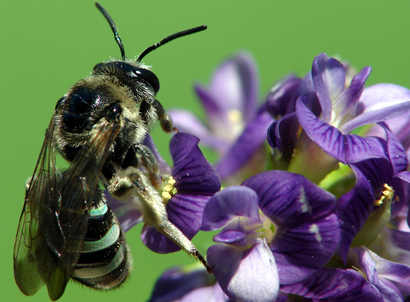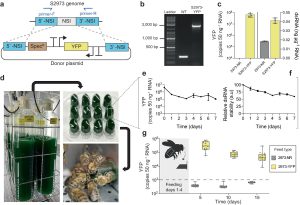White House Pollinator Partnership Action Plan Update
https://www.whitehouse.gov/sites/whitehouse.gov/files/images/Blog/PPAP_2016.pdf
June 20-26, 2016 was National Pollinator Week, and it’s a busy time of the year for bee scientists with USDA’s Agricultural Research Service (ARS) — and not just for the scientists who study honey bees.
https://entomologytoday.org/2016/06/23/national-pollinator-week-is-about-more-than-just-honey-bees/
If signed into law, this bill would set a goal for the USDA and other agencies of conserving, restoring, or enhancing 3 million acres of forage habitat — i.e. fields of flowering plants and shrubs — a step towards the goal of 7 million acres of pollinator habitat set by the White House in 2014.
http://thinkprogress.org/climate/2016/06/23/3791659/pollinator-week-bill/
Making Highways Safe for Bees, Butterflies and other Pollinators
https://www.transportation.gov/fastlane/keeping-highways-safe-bees-butterflies-and-other-pollinators
Protecting Pollinators in New York: Current Cornell Research
During National Pollinator Week, USDA Announces Key Measures to Improve Pollinator Health
http://www.usda.gov/wps/portal/usda/usdahome?contentid=2016/06/0152.xml&contentidonly=true
Smithsonian Pollinator Garden focuses on importance of pollination
http://www.washingtontimes.com/news/2016/jun/22/its-all-about-the-hummingbirds-and-the-bees-for-th/
USDA Funding Is Leading The Way On President’s 2014 Pollinator Protection Plan. Here’s How.
http://blogs.usda.gov/2016/06/24/reversing-pollinator-decline-is-key-to-feeding-the-future/
Trees, and Landscape Architects, For Bees
https://landscapearchitecturemagazine.org/2016/06/21/new-at-hq-pollinator-week/
50 Governors Line Up Behind Pollinator Protection Plan
http://www.pollinator.org/PDFs/press/Pollinator_Week_2016_Press_Release.pdf
This living laboratory is one of the latest features at UDC’s College of Agriculture, Urban Sustainability and Environmental Sciences (CAUSES), which is also home to the Center for 4-H & Youth Development.
Dr. Stephen Martin and collaborators recently discovered that it appears that an avirulent form of DWV may outcompete the virulent form in some apiaries, thus conferring to those bees resistance to the harmful effects of this virus. He has recently received funding from Project Apism to analyze samples of bees from the U.S. for the presence of the avirulent form. What we are particularly interested in are samples from apiaries or feral colonies that have survived without treatment for varroa for several years (especially those in which the brood looks healthy despite the mites). If you have access to such hives and are willing to collect samples later this summer, please email randy@randyoliver.com for details, with the words “Martin project” in the subject line.







